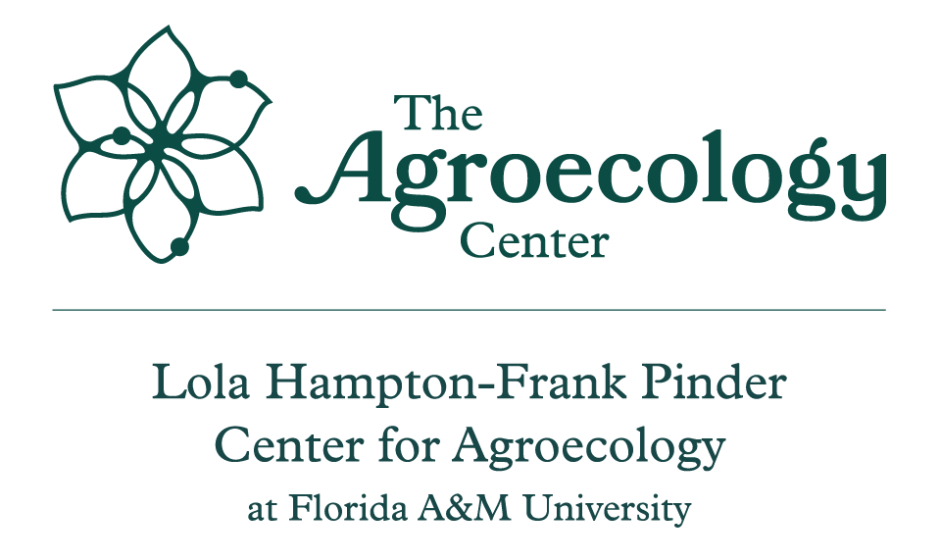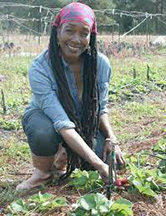FAMU & NBFJA Announce the Launch of the Lola Hampton-Frank Pinder Agroecology Center

Florida A&M University (FAMU) and the National Black Food & Justice Alliance (NBFJA) have announced the launch of the Lola Hampton-Frank Pinder Center for Agroecology.
The initiative is a recognition that Black farmers are in a state of emergency having been drastically reduced in the United States by an estimated 98 percent over the past century. In response and under the tutelage of Blackademics, the research arm of NBFJA comprised of academic and research partners, a critical need has been identified for an institution – an agroecological hub – to grow and expand practices, develop innovative solutions, and provide cross-institutional support for our land grant institutions and future generations of land stewards to carry forward the food system and climate resilience our communities need and deserve.
“The dwindling number of Black farmers has long been a major cause of concern. I am delighted that Florida A&M University will host the Lola Hampton-Frank Pinder Center for Agroecology,” said FAMU President Larry Robinson, Ph.D. “This initiative, named for two members of our community who have been devoted to this issue, will go a long way toward providing the training for the next generation of farmers. This Center is uniquely tied to FAMU’s core original mission as a Land Grant institution.”
This inaugural center at FAMU, the first projected in the next 20 years, is a critical intervention in research, training and steering the next generation of farmers and land stewardship practices away from extraction and harm and towards practices that will recover our systems, heal our communities, and lend toward the remediation of climate catastrophes.
Celebrations of the Lola Hampton-Frank Pinder Center for Agroecology launch will commence the weekend of November 11, 2022, on the FAMU campus with a private dinner Friday night and a food and farm festival, FAMUly Roots, on Saturday that is open to the greater Tallahassee community.
The Lola Hampton-Frank Pinder Center for Agroecology is housed in the College of Agriculture and Food Sciences and the College of Social Sciences, Arts, and Humanities and co-led by professors Kwasi Densu, Ph.D., and Jennifer Taylor, Ph.D.
 Professor Jennifer Taylor
Professor Jennifer Taylor
“The Lola Hampton-Frank Pinder Center for Agroecology presents such an excellent opportunity to engage our underserved Black farming communities in order to strengthen capacity – to build healthy farm environments, healthy food and healthy food sovereignty systems, and healthy communities. At the same time, this center will engage our students in hands-on learning about organic farming systems, the benefits of organic agriculture and careers in agroecology and integrated areas,” Professor Taylor said.
Named after local land stewards and champions of sustainable agriculture, Lola Hampton and Frank Pinder, the center will provide an interdisciplinary space, a think tank, where Black farmers’ voices, needs, ideas, challenges, strategies are discussed together with the support of scholarship and research to promote relevant changes and policy recommendations as a part of the solutions. The center will also develop local maps for food infrastructure while unearthing, recording, and preserving the food culture and foodways of Black, indigenous, and other marginalized farmers.
 Professor Kwasi Densu
Professor Kwasi Densu
The result will enable the dissemination of learning from the insights and brilliance of our ancestors, elders, and scholars, to carry forward intergenerational, agricultural exchange of knowledge critical to our resilience and survival today and into the future.
“The Lola Hampton-Frank Pinder Center for Agroecology’s existence strengthens our capacity to build healthy, stronger, resilient communities in the era of climate disruption, by centering the best of the culture, knowledge, and lifeways of Black farming communities,” Professor Densu added.



